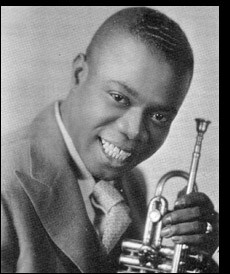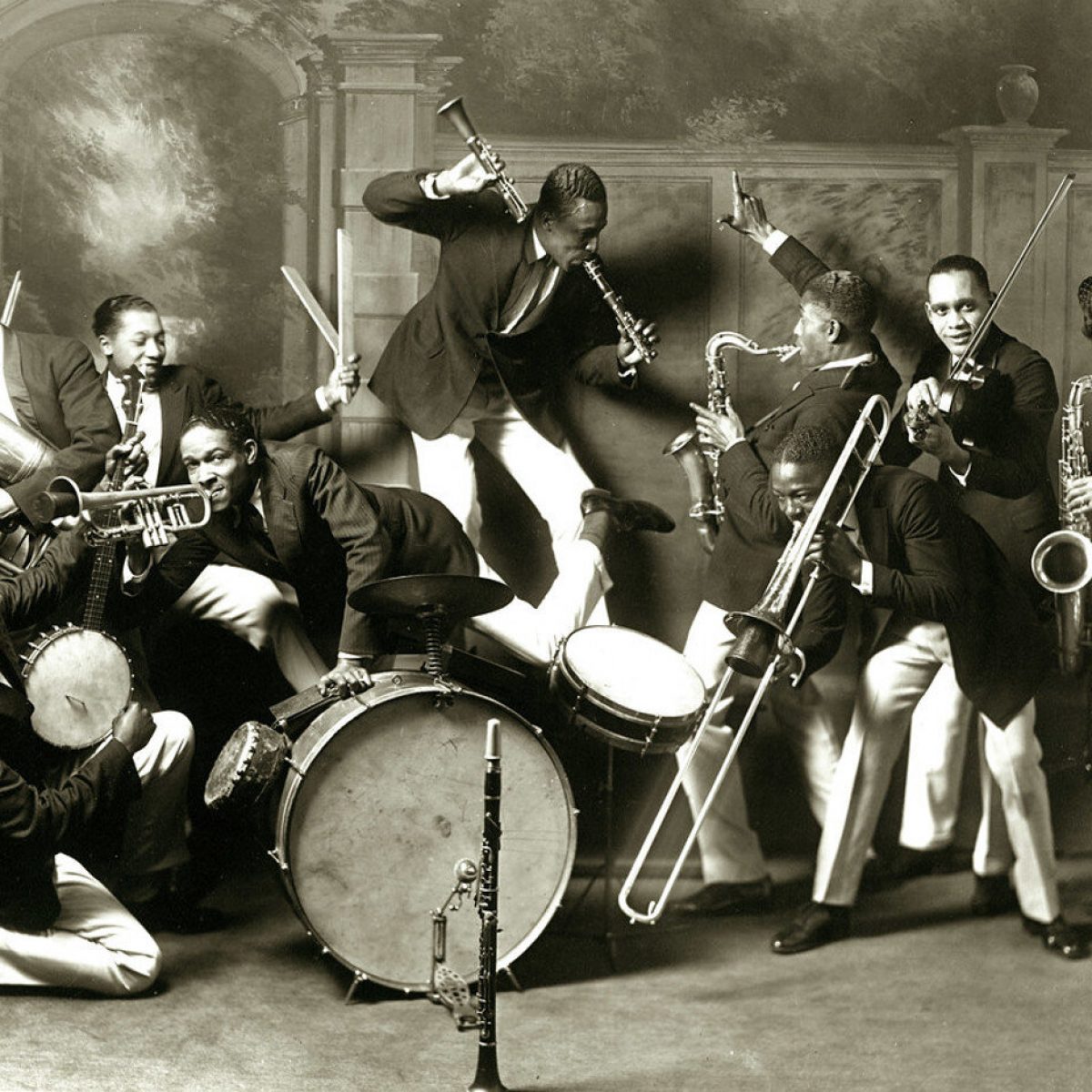 Louis Armstrong and his Hot Seven were the companion sessions of the Hot Five sides. The personnel is the same as the first Hot Five records except that John Thomas of Erskine Tate‘s Vendome Orchestra takes over Kid Ory’s place on trombone, Pete Briggs of the Carroll Dickenson Orchestra plays Tuba, and Baby Dodds plays drums.
Louis Armstrong and his Hot Seven were the companion sessions of the Hot Five sides. The personnel is the same as the first Hot Five records except that John Thomas of Erskine Tate‘s Vendome Orchestra takes over Kid Ory’s place on trombone, Pete Briggs of the Carroll Dickenson Orchestra plays Tuba, and Baby Dodds plays drums.
It is interesting to note that the addition of the tuba and drums to these sessions is probably less of an artistic decision than a technological one. In 1928 Okeh switched from an acoustic means of recording music to the new improved sounding electrical based systems. The acoustic recording process was often ruined by the vibration created by drums or bass, and recording engineers preferred not to have these instruments in a session or placed them so far from the recording horn, that they can rarely be heard well on the old acoustic recordings.

| Title | Recording Date | Recording Location | Company |
| Alligator Crawl (Fats Waller) |
5-7-1927 | Chicago, Illinois | Okeh 8482 |
| Don’t Jive Me (Lil Hardin) |
7-28-1928 | Chicago, Illinois | Okeh 8597 |
| Gully Low Blues (Louis Armstrong) |
5-14-1927 | Chicago, Illinois | Okeh 8474 |
| Keyhole Blues (N. Wilson) |
5-13-1927 | Chicago, Illinois | Okeh 8496 |
| Melancholy Blues (M. Bloom / Walter Melrose) |
5-11-1927 | Chicago, Illinois | Okeh 8496 |
| Potato Head Blues (Louis Armstrong) |
5-10-1927 | Chicago, Illinois | Okeh 8503 |
| S.O.L. Blues (Louis Armstrong) |
5-13-1927 | Chicago, Illinois | Okeh 8496 |
| That’s When I’ll Come Back To You (F. Biggs) |
5-13-1927 | Chicago, Illinois | Okeh 8519 |
| The Last Time (Ewing / Martin) |
9-6-1927 | Chicago, Illinois | Columbia 35838 |
| Weary Blues (Artie Matthews) |
5-11-1927 | Chicago, Illinois | Okeh 8519 |
| Wild Man Blues (Louis Armstrong / Jelly Roll Morton) |
5-7-1927 | Chicago, Illinois | Okeh 8474 |
| Willie The Weeper (Walter Melrose / M. Bloom) |
5-7-1927 | Chicago, Illinois | Okeh 8482 |
| Artist | Instrument |
| Lil Hardin-Armstrong | Piano |
| Louis Armstrong | Cornet, Vocals |
| Pete Briggs | Tuba |
| Baby Dodds | Drums |
| Johnny Dodds | Clarinet |
| Earl Hines | Piano |
| Johnny St. Cyr | Banjo |
| John Thomas | Trombone |
Redhotjazz.com was a pioneering website during the "Information wants to be Free" era of the 1990s. In that spirit we are recovering the lost data from the now defunct site and sharing it with you.
Most of the music in the archive is in the form of MP3s hosted on Archive.org or the French servers of Jazz-on-line.com where this music is all in the public domain.
Files unavailable from those sources we host ourselves. They were made from original 78 RPM records in the hands of private collectors in the 1990s who contributed to the original redhotjazz.com. They were hosted as .ra files originally and we have converted them into the more modern MP3 format. They are of inferior quality to what is available commercially and are intended for reference purposes only. In some cases a Real Audio (.ra) file from Archive.org will download. Don't be scared! Those files will play in many music programs, but not Windows Media Player.





















